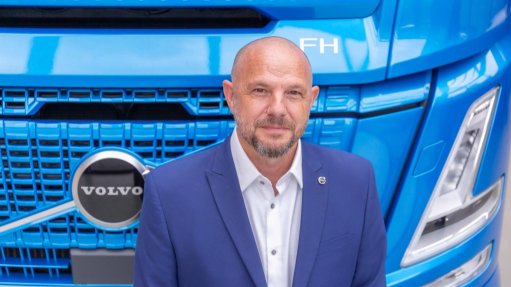More optimistic CEOs drive tech adoption, employment globally
Nearly 60% of CEOs expect global growth to increase over the next 12 months, which indicates a more positive outlook compared with 38% of CEOs having expected growth this time last year, and 18% of CEOs having expected growth this time in 2023.
Consultancy PwC finds in its latest ‘Annual Global CEO Survey’ that 42% of CEOs expected to employ more people over the next 12 months, which is more than twice the number who are expecting to decrease employment.
Of the CEOs expecting to increase employment by 5% or more, 48% lead smaller companies. From a sectoral viewpoint, 61% of technology CEOs foresee increased employment this year, 52% of private equity CEOs and 51% of pharmaceutical and life sciences CEOs.
PwC surveyed more than 4 700 CEOs across 109 countries and territories.
The respondents (29%) indicated that macroeconomic volatility and (27%) inflation remain the top risks for the year, but geopolitical conflict is considered the biggest risk in the Middle East, with 41% of CEOs in this region citing such.
In Western Europe, CEOs cite cyber-risk (27%) as the bigger concern, followed by a lack of skilled workers and inflation.
African CEOs are most concerned about inflation, with 39% of CEOs citing such.
“This year’s CEO Survey findings highlight a stark juxtaposition – business leaders around the world are optimistic about the year ahead, but also know they must re-invent how they create, deliver and capture value.
“Emerging technologies such as generative AI (GenAI), shifts in geopolitics, and the climate transition are all revolutionising how the economy works,” says PwC global chairperson Mohamed Kande.
He adds that new business ecosystems are forming, transforming how companies compete and create value.
To thrive, business leaders must act now and take bold decisions around their strategy, ranging from people, footprint and supply chain, right through to reinventing their business model, Kande suggests.
AFRICAN VIEW
PwC Africa CEO Dion Shango says African business leaders are experiencing similar challenges to their global counterparts, but there are pertinent areas leaders must focus on to drive sustained growth.
PwC Africa intends to launch a series of Africa-focused reports in February, which will analyse what CEOs in sub-Saharan Africa say about key business areas including the impact of economic conditions, GenAI, business model reinvention and climate action.
Shango believes African business leaders are uniquely positioned to drive transformative change and operate in an environment where optimism for the future is palpable.
However, to truly thrive, business leaders must reimagine approaches to value creation, Shango states, emphasising their need to determine the impact of emerging technologies, shifting geopolitical landscapes and climate action on their organisations.
REINVENTION DRIVE
Consistent with the last two years, four in ten, or 42%, of CEOs believe their company will not be viable beyond the next decade if it continues on its current path.
Among those that do not expect to last without significant change, 42% cite shifts in the regulatory environment as having the biggest influence on their economic viability.
However, CEOs are taking action across all sectors, with almost two-thirds of respondents, or 63%, having taken at least one significant action to change how their company creates, delivers, and captures value in the last five years.
As companies look to reinvent their business models, almost four in ten, or 38%, of CEOs say they have begun competing in at least one new sector in the last five years – with about one-third, or 34%, of respondents noting this has represented over 20% of company revenue over this period.
However, the pace of reinvention is slow and a large majority of companies lack agility.
When it comes to moving budget and people between projects and business units, around half of CEOs told PwC that they reallocate 10% or less of financial and human resources from year to year.
More than two-thirds reallocate less than 20%.
On average, only 7% of revenue over the last five years has come from distinct new businesses.
INCOMING TECHNOLOGY
CEOs are reporting tangible impact from GenAI. More than half, or 56%, of CEOs report seeing efficiency gains in their employees’ time over the last 12 months, and one-third saw revenue increases.
However, performance is somewhat below expectations expressed last year.
In 2024, 46% said they expected to see profitability improvements. A year later, when asked if they had seen those gains, only 34% said they had.
Trust in AI remains a hurdle to more widespread adoption. Only a third of CEOs said they have a high degree of trust in embedding the technology into key processes in their company.
Despite this, optimism about GenAI’s impacts on profitability is slightly up on last year – with 49% of CEOs expecting an increase in the next 12 months.
Roughly half, or 47%, of CEOs expect to integrate AI, including GenAI, into their technology platforms over the next three years, while 41% plan to integrate it into core business processes and 30% have plans for new products and service development.
While it is early days, there is nothing in our data to suggest a widespread reduction in employment opportunities across the global economy as a result of GenAI.
More CEOs (17%) say GenAI has increased headcount than decreased it (13%).
Meanwhile, as the climate transition continues to impact on businesses, CEOs have made more climate-related investments in recent years, with 33% of CEOs citing revenue increases as a result of these investments, compared with 5% having reported decreased revenue.
Nearly two-thirds of CEOs report that climate-related investments either reduced costs or had no significant impact on costs.
CEOs cite the main challenges impeding more of these investments as being regulatory complexity, with 24% of CEOs citing such, followed by lower returns on investment concerns and lack of buy-in from management or the board.
“Three-plus decades of digitisation have started to break down formerly impermeable boundaries between sectors, while the combined impact of the climate transition, AI and other megatrends will hasten the process of reconfiguration.
“This survey shows that business leaders are facing this future with a combination of optimism about the economy and realism that business needs to fundamentally reinvent how it creates value if it is to thrive in the future,” PwC global chief commercial officer Carol Stubbings concludes.
Article Enquiry
Email Article
Save Article
Feedback
To advertise email advertising@creamermedia.co.za or click here
Announcements
What's On
Subscribe to improve your user experience...
Option 1 (equivalent of R125 a month):
Receive a weekly copy of Creamer Media's Engineering News & Mining Weekly magazine
(print copy for those in South Africa and e-magazine for those outside of South Africa)
Receive daily email newsletters
Access to full search results
Access archive of magazine back copies
Access to Projects in Progress
Access to ONE Research Report of your choice in PDF format
Option 2 (equivalent of R375 a month):
All benefits from Option 1
PLUS
Access to Creamer Media's Research Channel Africa for ALL Research Reports, in PDF format, on various industrial and mining sectors
including Electricity; Water; Energy Transition; Hydrogen; Roads, Rail and Ports; Coal; Gold; Platinum; Battery Metals; etc.
Already a subscriber?
Forgotten your password?
Receive weekly copy of Creamer Media's Engineering News & Mining Weekly magazine (print copy for those in South Africa and e-magazine for those outside of South Africa)
➕
Recieve daily email newsletters
➕
Access to full search results
➕
Access archive of magazine back copies
➕
Access to Projects in Progress
➕
Access to ONE Research Report of your choice in PDF format
RESEARCH CHANNEL AFRICA
R4500 (equivalent of R375 a month)
SUBSCRIBEAll benefits from Option 1
➕
Access to Creamer Media's Research Channel Africa for ALL Research Reports on various industrial and mining sectors, in PDF format, including on:
Electricity
➕
Water
➕
Energy Transition
➕
Hydrogen
➕
Roads, Rail and Ports
➕
Coal
➕
Gold
➕
Platinum
➕
Battery Metals
➕
etc.
Receive all benefits from Option 1 or Option 2 delivered to numerous people at your company
➕
Multiple User names and Passwords for simultaneous log-ins
➕
Intranet integration access to all in your organisation




















